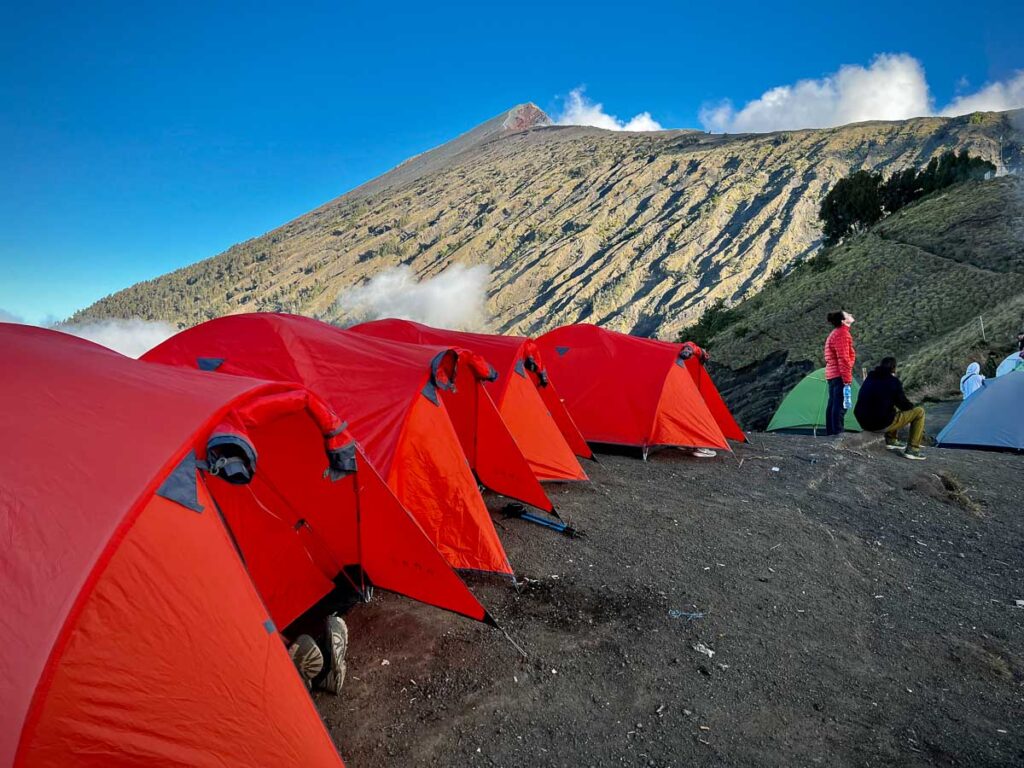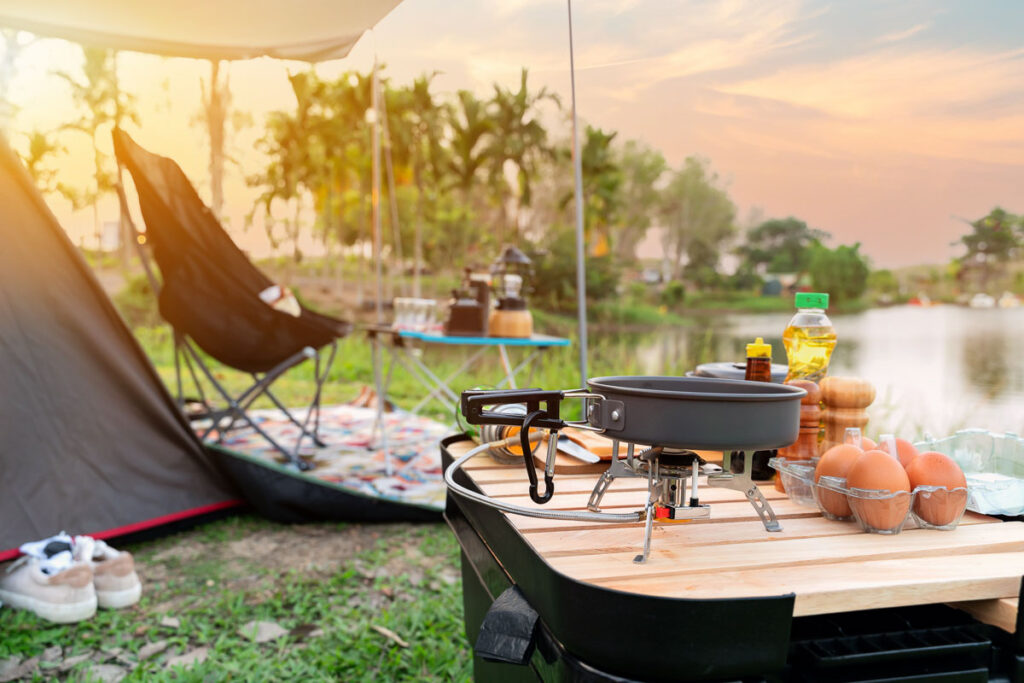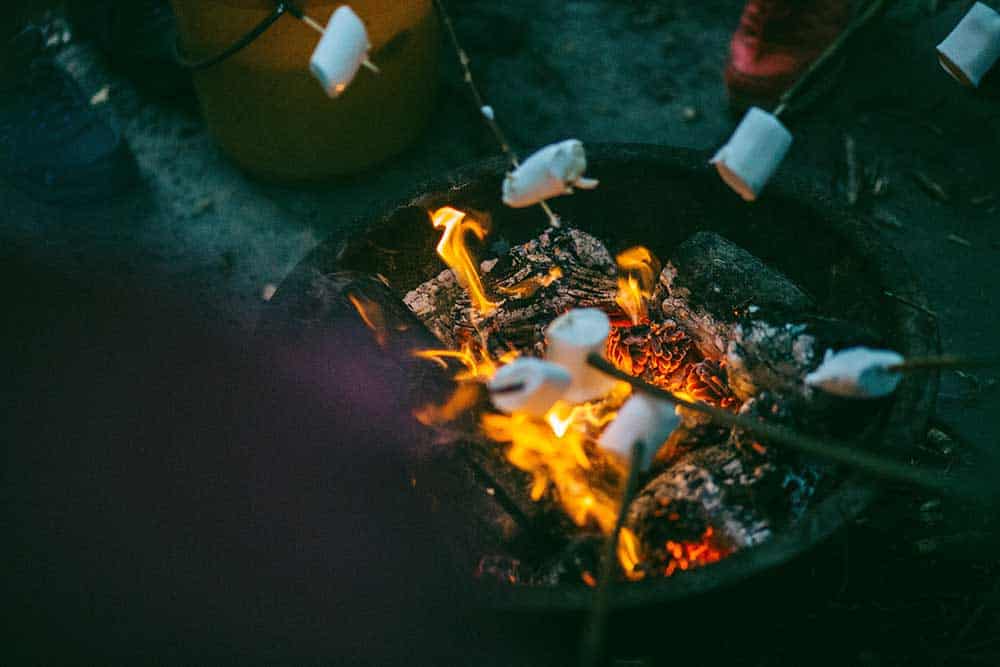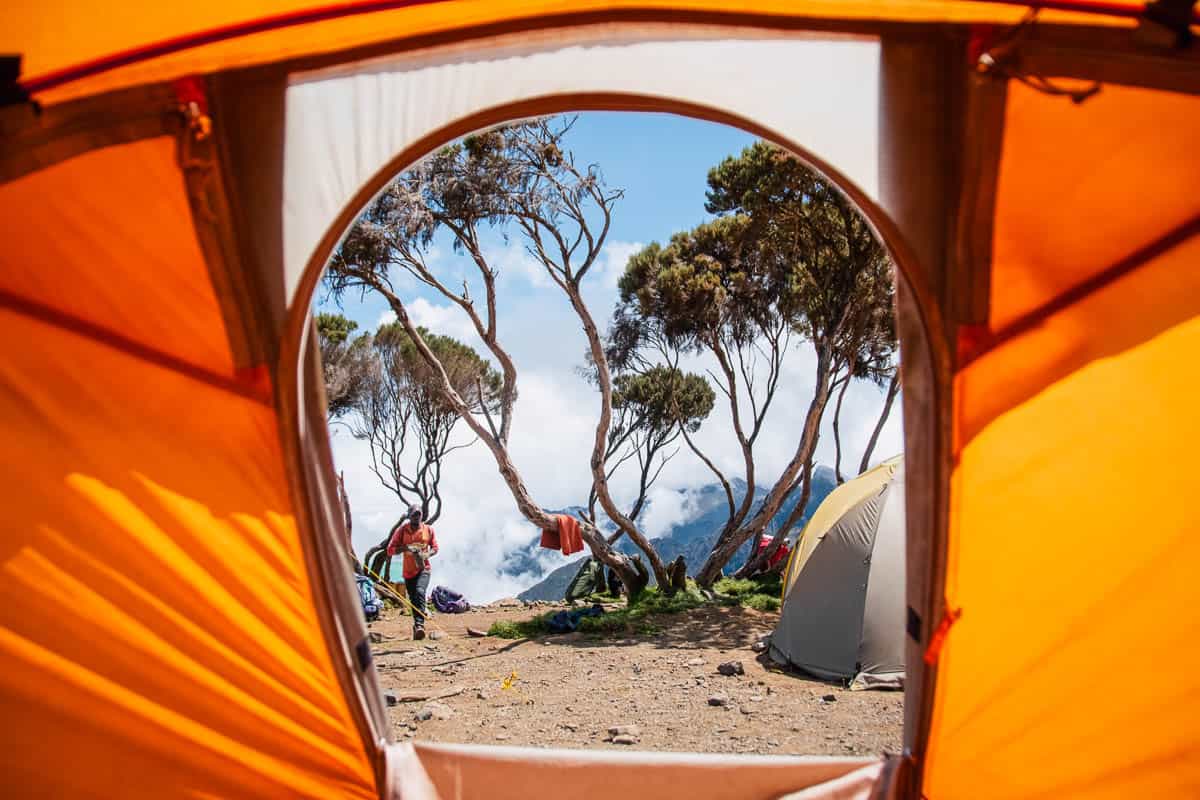Camping Packing List Must-Haves That Make Your Trip Effortless and Fun
As someone who considers herself an seasoned camping pro, I’ve learned from my mistakes of forgetting a headlamp, extra fuel, or your sleeping bag isn’t warm enough. A little planning goes a long way toward turning a weekend in the woods from stressful to seamless. The right gear not only keeps you comfortable but also frees you up to focus on the fun parts: hiking, cooking over the fire, and sleeping under the stars instead of scrambling for what you forgot.
This camping packing list covers the must-haves that make a real difference, from essentials you’ll use every day to smart extras that solve problems before they happen. The goal isn’t to bring everything you own, it’s to bring the few things that make everything else easier.

Shelter and Sleeping Gear
If you’ve ever woken up in a soggy tent or shivered through the night, you know shelter gear is no place to cut corners. Having the right setup means you’ll actually sleep well and enjoy your days outdoors. Think lightweight, durable, and weather-ready. Even if the forecast looks perfect, be ready for cold nights or sudden rain.
- Tent – make sure it’s the right size and has a rainfly for weather protection.
- Ground tarp/footprint – keeps water from seeping up into your tent.
- Sleeping bag – pick one rated for the lowest expected night temperature.
- Sleeping pad or air mattress – adds comfort and insulation from the ground.
- Camping pillow – small but makes sleep ten times better.

Cooking and Food Supplies
Camp food can be as simple or as gourmet as you want, but the basics keep it effortless. A simple stove or grill setup saves you from relying on a smoky fire for every meal. Don’t forget utensils and cleanup gear—washing dishes in the woods isn’t fun without a plan. Prepping meals ahead of time can also save headaches.
- Portable camp stove – easy meals without needing a fire.
- Fuel canisters – always pack an extra.
- Cookware – lightweight pots, pans, or a Dutch oven if you’re ambitious.
- Utensils – spatula, tongs, serving spoon, and a set per camper.
- Plates, cups, bowls – reusable is better than disposable.
- Cooler with ice packs – keeps perishable food safe.
- Food storage containers – protect from spills and animals.
- Biodegradable soap and sponge – cleaning up made easier.
Fire and Lighting
There’s nothing like a campfire at night, but lighting also means safety and comfort once the sun goes down. You’ll want more than one light source—headlamps for moving around, lanterns for the site, and flashlights as backup. Fire starters are lifesavers when wood is damp or you’re tired.
- Headlamp – keeps your hands free while moving around camp.
- Lantern – brightens up the campsite for group use.
- Flashlight – always good to have as a spare.
- Extra batteries – don’t let dead gear ruin your night.
- Matches or lighter – waterproof options are best.
- Fire starter – takes the stress out of damp wood.
Clothing and Footwear
Packing for camping is all about layers. Even in summer, nights can get surprisingly cold. Durable footwear is just as important as warm clothing—you’ll regret flimsy shoes on rocky ground. Comfort is king here, so skip fancy outfits and stick to practical gear.
- Moisture-wicking base layers – keep sweat off your skin.
- Warm layers (fleece or wool) – crucial for chilly evenings.
- Rain jacket – sudden showers happen.
- Comfortable hiking boots or shoes – protect your feet on trails.
- Sandals or camp shoes – great for relaxing at camp.
- Extra socks and underwear – always pack more than planned.
- Hat and gloves – even in mild seasons, nights get cold.
Health and Safety
Outdoors means scrapes, bugs, and sun exposure, so being prepared keeps little issues from becoming trip-ruiners. Think of this category as your personal comfort and protection kit. A first-aid kit is essential, and bug spray is a non-negotiable if you’re near water or woods. Sunscreen is often overlooked but makes a huge difference when you’re outside all day.
- First-aid kit – bandages, antiseptic, pain relievers, tweezers.
- Bug spray – mosquitoes can be relentless.
- Sunscreen – protect against long hours of outdoor exposure.
- Hand sanitizer and wipes – easy cleaning without running water.
- Prescription meds – always in original bottles.
- Toilet paper and trowel – in case facilities are limited.
Tools and Extras
Sometimes it’s the little extras that save the day. A good multi-tool handles repairs, while ropes and tarps cover the unexpected. Camping trips run smoother when you’re ready for surprises—like wind, rain, or a leaky cooler.
- Multi-tool or knife – countless uses from cooking to repairs.
- Duct tape – fixes almost anything temporarily.
- Rope or paracord – great for hanging tarps or laundry.
- Extra tarp – shade, shelter, or ground cover.
- Camping chairs – make campfires much more comfortable.
- Map and compass – reliable backup for navigation.

Food and Personal Extras
Beyond the basics, a few thoughtful extras make the trip fun. Snacks are great around campfires, and a deck of cards keeps evenings lively. Personal items like journals or cameras help you make the most of downtime.
- Trail snacks – jerky, granola, or nuts for quick energy.
- Marshmallows, graham crackers, chocolate – because s’mores are mandatory.
- Deck of cards or travel games – for downtime entertainment.
- Journal or book – for quiet moments.
- Camera – capture the trip beyond phone photos.
Things You Don’t Need
Overpacking is the fastest way to make camping harder than it has to be. Leave behind heavy, fragile, or unnecessary extras. Your goal is to enjoy the outdoors, not drag along your whole house.
- Too many clothes – you’ll re-wear more than you think.
- Excess electronics – limit it to basics; outlets are scarce.
- Large appliances – camping isn’t for blenders or coffee machines.
- Bulky furniture – one or two chairs is enough.
Final Handy Tips
Pack with organization in mind, like stuff sacks, bins, or bags make finding things easier at camp. Always check the weather and tailor your gear accordingly. Double-check the campsite rules, especially about fires and wildlife. Most importantly, keep it simple and enjoy the slower pace. The best camping trips aren’t about what you bring, but about the moments you have once you’re there.
Catherine Xu is the founder and author of Nomadicated, an adventure travel blog that helps travelers cross off their bucket list. Since discovering traveling in 2015, she has lived and journeyed to 65 countries across 5 continents and vanlifed the west coast USA for 2+ years. These days, she splits her time in Southeast Asia and California while sharing her travel stories and resources based on first-hand experiences. Catherine's other works has been referenced in major publications like MSN, Self, and TripSavvy.

